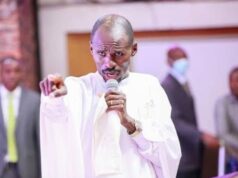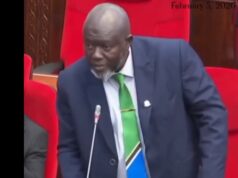- Samuel Abwang, a former District Police Commander (DPC) in Koboko, Uganda, mysteriously disappeared and later resurfaced in Canada.
- Before his departure, his lavish lifestyle raised eyebrows, as he lived in a hotel instead of police housing and frequently sponsored events.
- He was reportedly detained at Makindye Military Barracks but was never formally charged.
- Speculation suggests his relocation may have been influenced by personal identity concerns and legal challenges in Uganda.
- Reports claim he is married to a fellow man, fueling further discussions about his possible reasons for seeking asylum.
Abwang’s Lavish Lifestyle Raised Questions
Samuel Abwang, also known as Afande Ebwang, was an influential police commander whose sudden disappearance in Uganda left many puzzled.
Before vanishing, Abwang had drawn attention due to his unconventional lifestyle. Unlike other DPCs who lived in official police residences, he chose to stay in a hotel in Koboko. Additionally, he frequently traveled to Kampala and was known for sponsoring social events, despite earning an estimated UGX 800,000 per month—a salary that seemingly did not match his expenditures.
Held at Makindye Military Barracks
Concerns grew when Abwang suddenly went missing, only for it to be later revealed that he had been detained at Makindye Military Barracks. However, he was never formally charged with any crime.
Following his release, Abwang left Uganda and eventually relocated to Canada, though details of how he managed to leave remain unclear.
Personal Identity Speculation and Possible Asylum
There has been widespread speculation about the reasons behind Abwang’s sudden move. Some reports suggest that his personal life may have played a role, particularly given Uganda’s strict laws against homosexuality.
Unverified reports claim that Abwang is married to another man, which could have led him to seek refuge in Canada, where LGBTQ+ rights are protected.
A Story of Identity and Escape?
Abwang’s journey from a high-ranking police officer to an asylum seeker in Canada raises broader questions about societal expectations, personal identity, and the lengths individuals go to in order to live freely.








